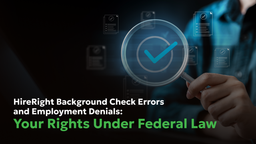How to Reactivate Your Lyft Account After Inaccurate Background Check
- Blog
- Employment Background Check Errors
How to Reactivate Your Lyft Account After Inaccurate Background Check
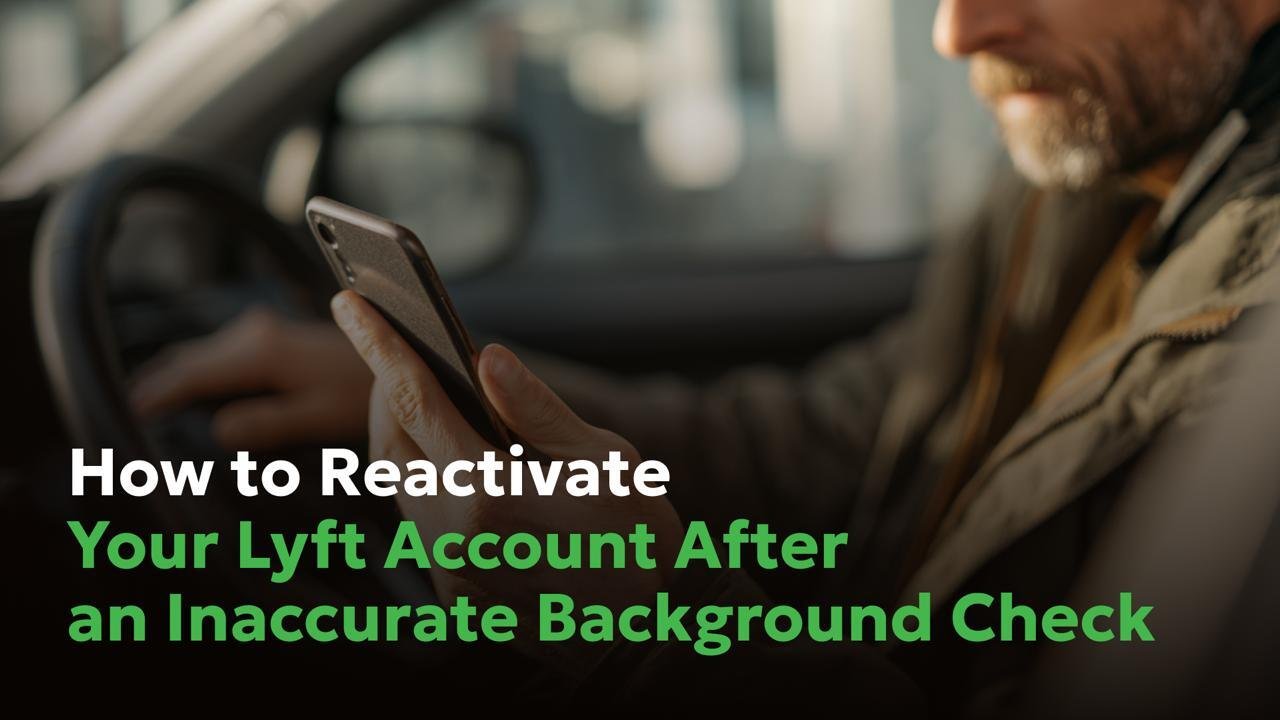
Woke up to find your Lyft account deactivated over a background check error? You’re not alone—and at Consumer Attorneys, we’re here to tell you that you have more rights than you might think.
We’ve helped hundreds of rideshare drivers get back on the road after wrongful deactivations. The good news? Most background check errors can be fixed, and you may even be entitled to compensation for your lost income.
Let us walk you through exactly what happened, why it matters, and most importantly—how we can help you fix it.
Understanding Why Your Lyft Account Was Suspended Due to Background Check Issues
Here’s something that catches most drivers off guard: Lyft doesn’t actually run your background check themselves.
Instead, they outsource the entire process to a third-party company called Checkr, Inc. This massive screening operation processes millions of background reports every month across the gig economy. While Checkr handles background checks for companies like Lyft, Amazon Flex, and others, the process isn’t perfect.
The Lyft background check company pulls information from hundreds of sources—courthouses, DMV databases, law enforcement repositories, and automated data brokers. When everything works smoothly, the process takes just a few days. But when data enters the system incorrectly? That’s when drivers lose their livelihoods overnight.
And here’s the shocking truth we see in our practice every day: The Federal Trade Commission reports that approximately 25% of background checks contain material inaccuracies that affect eligibility. That means 1 in 4 background checks has errors serious enough to cost someone a job opportunity.
With over 70.4 million Americans working in the gig economy as of 2025—a number projected to reach 86.5 million by 2027—these errors affect hundreds of thousands of workers annually.
Common Reasons Your Lyft Account Has Been Suspended After a Background Check
In our years of representing drivers, we’ve seen deactivations triggered by all kinds of mistakes that had nothing to do with actual safety concerns:
- Mixed identity files: Records belonging to someone else with a similar name get attached to your report
- Sealed or expunged records: Cases you resolved years ago suddenly reappear as if they’re current
- Duplicate charges: The same incident gets counted twice, making it look like multiple offenses
- Outdated DMV data: Tickets you’ve already cleared or corrected still show up as violations
- Missing case outcomes: An arrest shows up without the dismissal or “not guilty” verdict
- Wrong dates or locations: Mismatched information that flags you incorrectly
- Misclassified violations: Minor infractions reported as serious offenses
Any of these errors can trigger an automated deactivation. And because Lyft’s system relies heavily on Checkr’s data, they rarely investigate the underlying accuracy before taking action.
According to a comprehensive October 2025 report by the Asian American Legal Defense and Education Fund (AALDEF), the deactivation crisis has reached alarming proportions:
- 70% of drivers deactivated by Uber and 76% by Lyft received no prior notice
- 95% of surveyed deactivated drivers identified as people of color
- More than 90% of drivers who appealed remained permanently locked out of their accounts
These aren’t just statistics to us—they’re the faces of drivers we help every single week.
Does Lyft Do Background Checks? How the Lyft Criminal Background Check Process Really Works
Yes, Lyft does background checks—and they’re more extensive than most drivers realize.
When you apply to drive for Lyft or during their annual re-screening, Checkr conducts a comprehensive review that includes:
- Social Security number trace to verify your identity and locate all addresses associated with you
- Criminal record search covering county, state, and federal databases (typically looking back 7 years)
- Sex offender registry check across all 50 states
- Driving record review through the DMV to identify violations, accidents, and license status
- Multi-state criminal database searches to catch records outside your current residence
This process usually takes anywhere from a few days to several weeks, depending on factors like:
- Court processing speeds (some counties still use paper records)
- Database response times during high-volume periods
- Name or address variations that require manual verification
- Holidays and staffing shortages at various agencies
But here’s where problems emerge: Checkr’s automated systems don’t always distinguish between John Smith the driver and John Smith the person with a criminal record in another state. They don’t always catch when a case was dismissed or sealed. And they don’t always update information when you’ve corrected a DMV error.
If your Lyft background check has been pending for longer than a few weeks, or if you received a sudden deactivation notice, there’s a good chance something in the data pipeline got stuck or reported incorrectly.
Why “My Lyft Account Is Deactivated” Doesn’t Mean You’re Out of Options
We know how devastating it feels to open the Lyft app and see that deactivation message. For many drivers, this isn’t just an inconvenience—it’s an immediate loss of income that affects rent, groceries, and bills.
But here’s what Lyft won’t tell you upfront: You have powerful legal rights under the Fair Credit Reporting Act, and background check companies are required by federal law to investigate and correct errors.
The FCRA gives you the right to:
- Access your complete background report at no charge
- Dispute any inaccurate, incomplete, or outdated information
- Receive a thorough investigation completed within 30 days
- Get a corrected report if errors are found
- Hold Checkr and Lyft accountable if their mistakes cost you work
- Receive compensation for lost wages and damages caused by violations
Recent industry research found that 1 in 3 rideshare drivers who lose work due to a background check do so because of an error—not because of a legitimate safety concern.
That means tens of thousands of drivers are being unfairly deactivated every year. But unlike many of them, you now know you have legal options—and we’re here to help you exercise them.
Step-by-Step: How to Reactivate Your Lyft Account After Background Check Errors
Alright, let’s get you back on the road. Here’s the exact process we walk our clients through when they’re facing a Lyft deactivation due to background check issues.
Step 1: Get Your Full Checkr Background Report Immediately
Don’t rely on the summary Lyft might have shown you in the app. You need the complete, detailed report that shows exactly what information triggered your deactivation.
Log into the Checkr Candidate Portal using the email address associated with your Lyft driver account. Download the entire report and save multiple copies.
Look carefully for:
- Records that don’t belong to you
- Incorrect dates or case numbers
- Missing disposition information (dismissals, acquittals, expungements)
- Duplicated charges or violations
- Wrong locations or jurisdictions
- Cases that were sealed or expunged
Step 2: Document Everything Related to the Error
This is where most drivers skip a crucial step, but we never let our clients make this mistake. You need evidence to prove the background check is wrong.
We help you gather documentation like:
- Court records showing case dismissals or expungements
- DMV printouts proving you corrected violations
- Police reports with accurate information
- Legal documents showing name changes or identity verification
- Any correspondence proving the record belongs to someone else
The more documentation you have, the stronger your dispute will be—and the faster the correction process typically moves.
Step 3: File a Formal Dispute with Checkr
Under the FCRA, Checkr is legally required to investigate disputes and correct inaccurate information within 30 days.
Here’s how we recommend disputing effectively:
Option A: Online Dispute (Fastest)
- Log into your Checkr Candidate Portal
- Locate the report with incorrect information
- Scroll to the bottom and click “File a dispute”
- Select the incorrect records and explain the error in detail
- Upload your supporting documentation
- Submit and save the confirmation email
Option B: Written Dispute (Creates Paper Trail)
If you want the strongest legal protection—and we always recommend this—send a certified letter to:
Checkr, Inc.
1 Montgomery St., Suite 2400
San Francisco, CA 94104
Your letter should:
- Clearly identify the specific errors
- Explain why the information is wrong
- Include copies (not originals) of supporting documents
- Request correction and an updated report
- Keep the tracking receipt and a copy of everything you send
Our recommendation: Do both—file online for speed, then follow up with a certified letter for legal documentation. This is what we do for our clients, and it maximizes your protection.
Step 4: Notify Lyft About the Dispute
While Checkr investigates, you should also appeal directly with Lyft. Visit Lyft’s permanent deactivation appeal page and submit your appeal with:
- A clear explanation of the background check error
- Copies of the documentation you sent to Checkr
- Your Checkr dispute confirmation
- A request for account reactivation pending the investigation
Lyft’s review process isn’t always quick, but putting your appeal on record creates an important timeline if you later need to take legal action—which is where we come in.
Step 5: Monitor the Investigation and Follow Up
Checkr has 30 days to investigate, but we never let our clients sit and wait passively. Check your Checkr portal regularly for updates. If they request additional information, respond immediately—delays can extend the timeline.
After the investigation completes, Checkr must:
- Provide you with the results in writing
- Send you an updated background report if corrections were made
- Notify Lyft of any changes to your report
Critical step most drivers miss (but we don’t): Once you get the updated report, review it line-by-line. Sometimes corrections are incomplete or new errors appear. We verify that the specific error you disputed was actually fixed and that no new problems were introduced.
Step 6: Request Lyft Reactivation with Your Corrected Report
Once Checkr corrects the error, you’ll need to proactively push for reactivation:
- Contact Lyft support through the app or help center
- Reference your previous appeal
- Attach your corrected Checkr report
- Request immediate account reactivation
- Document all communication with screenshots and saved emails
In some cases, reactivation happens automatically once Checkr updates Lyft’s system. In others, you’ll need to be persistent and follow up multiple times. This is where having legal representation can make all the difference.
What to Do When Checkr or Lyft Won’t Fix the Error
Here’s the frustrating reality we encounter regularly: Sometimes Checkr doesn’t fully correct the error. Sometimes they “reinvestigate” and come back with the same wrong information. And sometimes Lyft refuses to reactivate your account even after the correction.
If any of these happen to you, it’s time to bring us in.
Under the FCRA, you have the right to take legal action when:
- Checkr fails to properly investigate your dispute
- They report information they know (or should know) is inaccurate
- They don’t correct errors after you’ve provided proof
- Their mistakes cause you to lose income or work opportunities
- Lyft takes adverse action without giving you proper notice
In early 2025, Checkr settled an alleged AI-error lawsuit for more than $4 million. More than 40 people have sued the background screening provider for violating the Fair Credit Reporting Act in recent years. These settlements send a clear message: companies cannot ignore their legal obligations.
Understanding Your Rights: Lyft Deactivation Lawsuit and FCRA Violations
At Consumer Attorneys, we want you to understand something important: You may be entitled to significant compensation if Checkr or Lyft violated your rights.
The Fair Credit Reporting Act isn’t just about getting your report fixed—it’s about holding companies accountable when their errors harm you financially.
Types of Compensation Available Under the FCRA
When background check companies violate the FCRA, we help drivers recover:
Lost Income and Economic Damages
- All wages you would have earned during deactivation
- Future earnings if you can’t return to driving
- Lost tips and bonuses you would have received
- Other financial losses directly caused by the error
Emotional Distress Damages
- Stress and anxiety from a sudden income loss
- Embarrassment from wrongful accusations
- Impact on your reputation and self-esteem
- Strain on family relationships due to financial hardship
Statutory Damages
- Between $100 and $1,000 per FCRA violation
- Available even if you can’t prove specific dollar losses
- Can add up quickly when multiple violations occur
Punitive Damages
- Additional punishment when violations were willful
- Designed to deter future misconduct
- Can be substantial in cases of repeated or egregious violations
Attorney’s Fees and Court Costs
- The company pays your legal fees—not you
- This means you never pay anything out of pocket
- No upfront costs, no hourly fees, no risk to you
This last point is crucial: Our FCRA cases work on contingency, which means you only pay if we win, and even then, the defendant typically covers all legal costs. There’s literally no financial risk to pursuing your rights with us.
Real Examples: Lyft Background Check Lawsuits and Settlements
While we can’t discuss specific client cases due to confidentiality, public court records show numerous FCRA lawsuits involving rideshare drivers that we track closely:
- Checkr’s $4+ million settlement in 2025 for alleged AI errors in background screening
- Drivers who lost months of income due to mixed identity files have recovered tens of thousands in lost wages
- Cases involving Checkr reporting expunged records have resulted in substantial settlements
- Class action lawsuits have challenged systemic failures in Lyft and Uber’s background check processes
- Individual plaintiffs have won statutory and punitive damages when companies ignored dispute evidence
According to the 2025 Mid-Year Class Action Settlement Report, class action settlements totaled $21.77 billion in 2025 (through mid-year), demonstrating that courts take consumer rights violations seriously.
These cases send a powerful message: Companies that profit from gig workers can’t afford to be careless with background checks. And we make sure they pay the price when they are.
How Long Does It Take to Reactivate a Lyft Account?
We won’t sugarcoat this—the timeline varies significantly depending on several factors:
If the error is clear and well-documented: 2-4 weeks from dispute to reactivation
If Checkr needs to verify information with multiple agencies: 4-8 weeks
If Lyft is slow to process the corrected report: Add another 1-2 weeks
If you need our legal intervention: This can actually speed things up significantly, as we know how to apply pressure that gets results
The most important thing you can do to speed up the process is act immediately. Every day you wait is another day of lost income. We encourage you to start your dispute the same day you discover the error.
And if you’re already several weeks into the process with no progress? That’s a red flag that you need our help.
Why Hiring Consumer Attorneys for Your Lyft Deactivation Case Makes Sense
Look, we understand the hesitation. Many drivers think, “Can’t I just handle this myself? Why do I need an attorney?”
Here’s our honest answer: Yes, you can try to handle it yourself using the steps we outlined above. Some drivers do succeed on their own, especially with clear-cut errors and good documentation.
But here’s what we bring to the table at Consumer Attorneys:
We Know How to Apply Legal Pressure
Background check companies respond very differently when we’re involved. A dispute letter from a driver might sit in a queue for weeks. A letter from our firm with a track record of filing successful FCRA lawsuits? That gets immediate attention.
We Understand the Technical Legal Requirements
The FCRA has specific procedures and deadlines. Companies try to exploit technicalities to avoid liability. We know exactly what they’re required to do and when—and we hold them to every letter of the law.
We Maximize Your Compensation
Most drivers just want their account reactivated. But if you’ve lost weeks or months of income because of someone else’s error, you deserve to be compensated for that loss. We ensure you recover everything you’re entitled to under federal law.
No Upfront Costs and No Out-of-Pocket Fees
This is the beauty of FCRA cases: You have nothing to lose and everything to gain. We work on contingency, and the law requires the defendant to pay your legal fees if we’re successful. There’s zero risk to you.
We’ve Done This Hundreds of Times Before
Every week, we help drivers fix background check errors and get back on the road. We know the common tactics Checkr uses, we understand Lyft’s internal processes, and we have relationships with decision-makers that can expedite your case.
The AALDEF report found that over 90% of drivers who appealed on their own remained deactivated. We dramatically improve those odds.
Preventing Future Lyft Background Check Issues
Once we get you reactivated, we want to make sure this never happens again. Here are some proactive steps we recommend:
Monitor Your Records Regularly
- Check your driving record with your state DMV at least twice a year
- Review your criminal background through your state’s court system
- Consider signing up for a credit monitoring service that also tracks public records
Keep Documentation of Everything
- Save copies of traffic ticket payments and court dispositions
- Keep records of any legal matters and their outcomes
- Document any name changes, address updates, or identity verification
Respond Quickly to Any Lyft Notifications
- If Lyft flags something during annual background checks, don’t ignore it
- Address potential issues before they lead to deactivation
- Keep your contact information current so you don’t miss important notices
Know Your Rights Under Local Laws
Some cities and states have additional protections for gig workers beyond the FCRA:
- California: Strong consumer privacy protections and gig worker rights
- New York: Proposed legislation (Intro 276) would require “just cause” for deactivations and provide severance pay
- Seattle: Regulations protecting driver due process rights
Understanding both federal FCRA rights and local protections gives you the strongest position if issues arise. We stay on top of all these developments so you don’t have to.
Your Next Steps: Don’t Wait to Reactivate Your Lyft Account
If your Lyft account has been suspended due to a background check error, time is money—literally. Every day you can’t drive is income you’re not earning.
Here’s what we recommend you do right now:
- Pull your Checkr report immediately and identify the specific errors
- Gather supporting documentation that proves the information is wrong
- File a formal dispute with Checkr using both online and certified mail methods
- Submit an appeal to Lyft with your evidence and dispute confirmation
- Contact us at Consumer Attorneys if you encounter resistance or delays—or better yet, let us handle steps 1-4 for you
Remember, you’re not asking for special treatment—you’re simply exercising your legal rights under federal law. Companies have a legal obligation to ensure the information they use to make employment decisions is accurate.
And if they’ve violated that obligation, causing you financial harm in the process, we’ll make sure you get the compensation you deserve.
Take Action Now—Free Case Evaluation from Consumer Attorneys
At Consumer Attorneys, we specialize in helping rideshare drivers fight back against inaccurate background checks. We’ve successfully helped hundreds of Lyft and Uber drivers get reactivated and recover lost income.
Here’s what sets us apart:
✓ We specialize in FCRA cases—this is what we do every day
✓ No upfront costs—you don’t pay unless we win
✓ Fast action—we understand that every day counts when you can’t work
✓ Proven track record—we’ve won compensation for drivers across the country
✓ Compassionate approach—we know this is about your livelihood, not just a legal case
✓ Google 5-star rated and BBB A+ rated—our reputation speaks for itself
Don’t let a background check error destroy your income. You have rights, and we’re here to help you enforce them.
With over 70 million Americans now working in the gig economy, protecting your right to work has never been more important. We’re in your corner.
Frequently Asked Questions
Typically 3-10 business days, though it can take several weeks if there are name variations, multiple addresses, or county courts with manual processing systems. If your check exceeds 3-4 weeks, contact us—something may be wrong.
It depends on the type and timing of the offense. Lyft disqualifies drivers for certain crimes within the past 7 years, but not all misdemeanors are automatic disqualifiers. Violent crimes, sexual offenses, and theft-related charges typically lead to denial.
Expunged and sealed records should NOT appear on your background check. If they do, this is a clear FCRA violation, and you have strong grounds for a lawsuit. We’ve successfully represented many drivers in exactly this situation.
Checkr, Inc. is the primary background check company for Lyft. They’re a third-party consumer reporting agency that processes millions of checks for gig economy platforms. When they make mistakes, we hold them accountable.
Log into the Checkr Candidate Portal atcandidate.checkr.com using the email associated with your Lyft driver application.
Yes, if the deactivation was based on inaccurate background check information and Lyft or Checkr violated the FCRA. You may be entitled to lost wages, emotional distress damages, and statutory penalties. We can help you determine if you have a case.
Lyft reviews your driving history (violations, accidents, license status), criminal records (county, state, and federal), sex offender registries, and identity verification through Social Security traces.
It varies by case, but you may recover: actual damages (all lost income), statutory damages ($100-$1,000 per violation), emotional distress damages, punitive damages (for willful violations), and attorney’s fees. We’ve helped clients recover anywhere from thousands to tens of thousands of dollars.


Daniel Cohen is the Founder of Consumer Attorneys. Daniel manages the firm’s branding, marketing, client intake and business development efforts. Since 2017, he is a member of the National Association of Consumer Advocates and the National Consumer Law Center. Mr. Cohen is a nationally-recognized practitioner of consumer protection law. He has a we... Read more
Related Articles
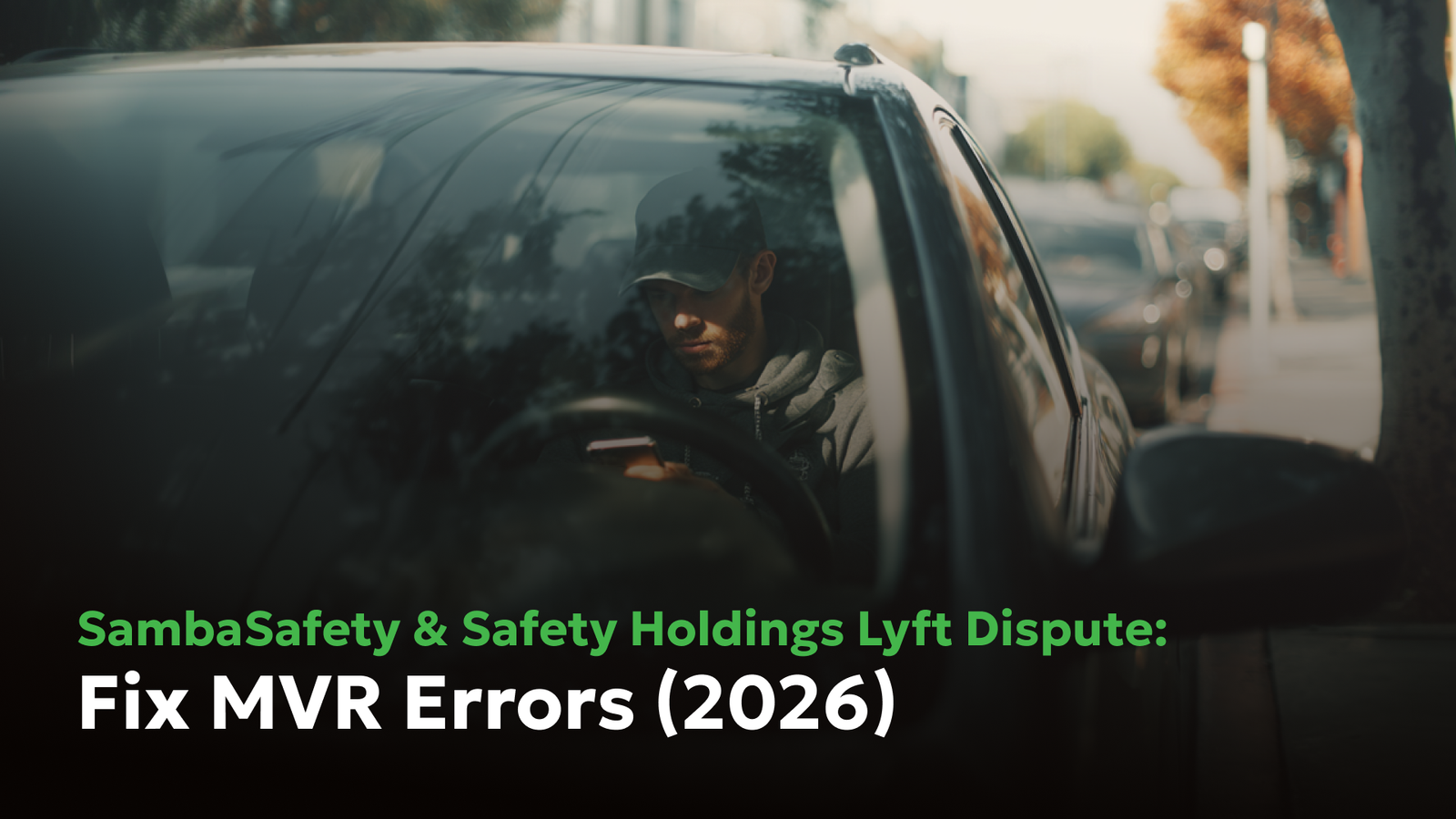
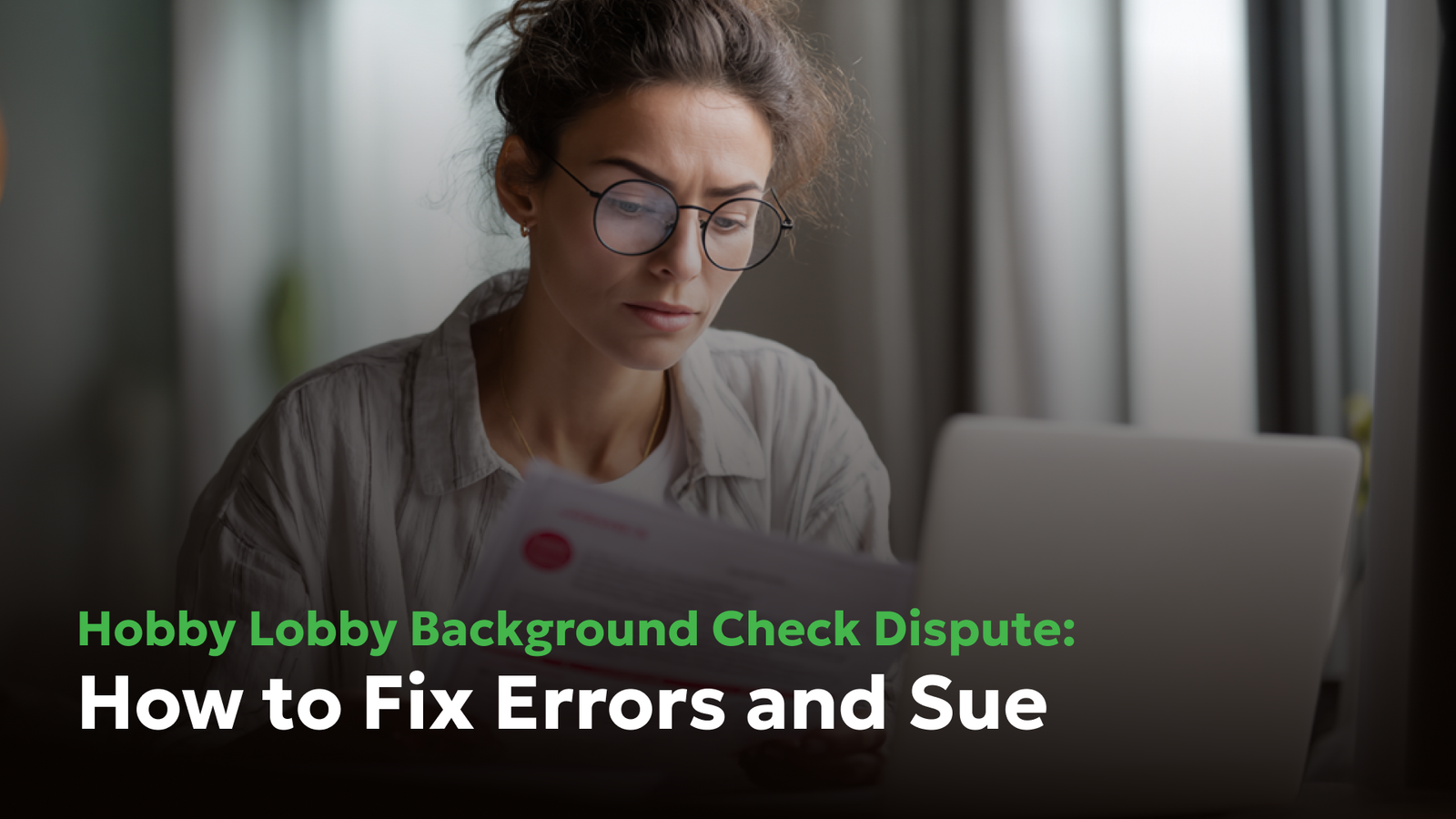
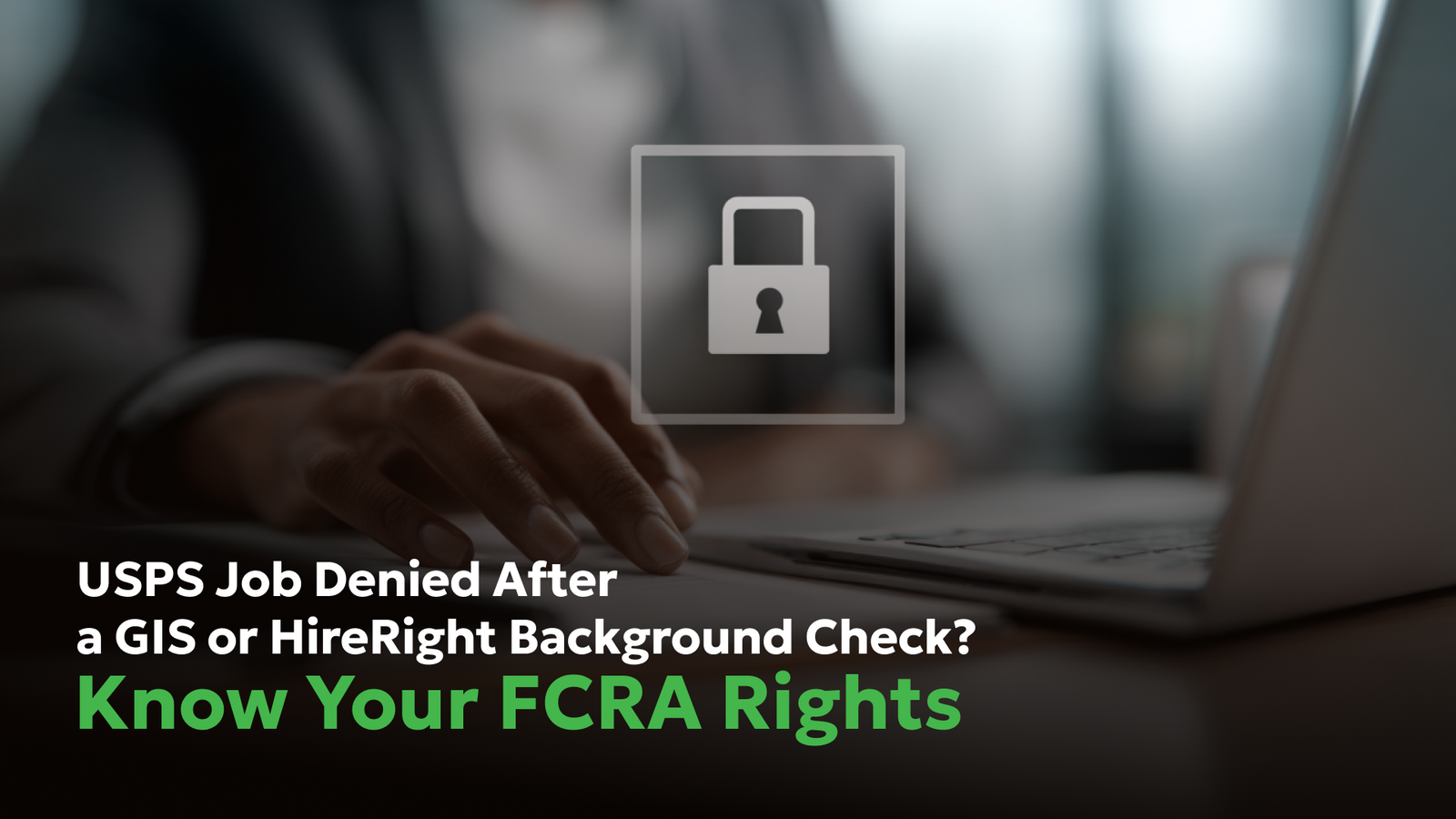
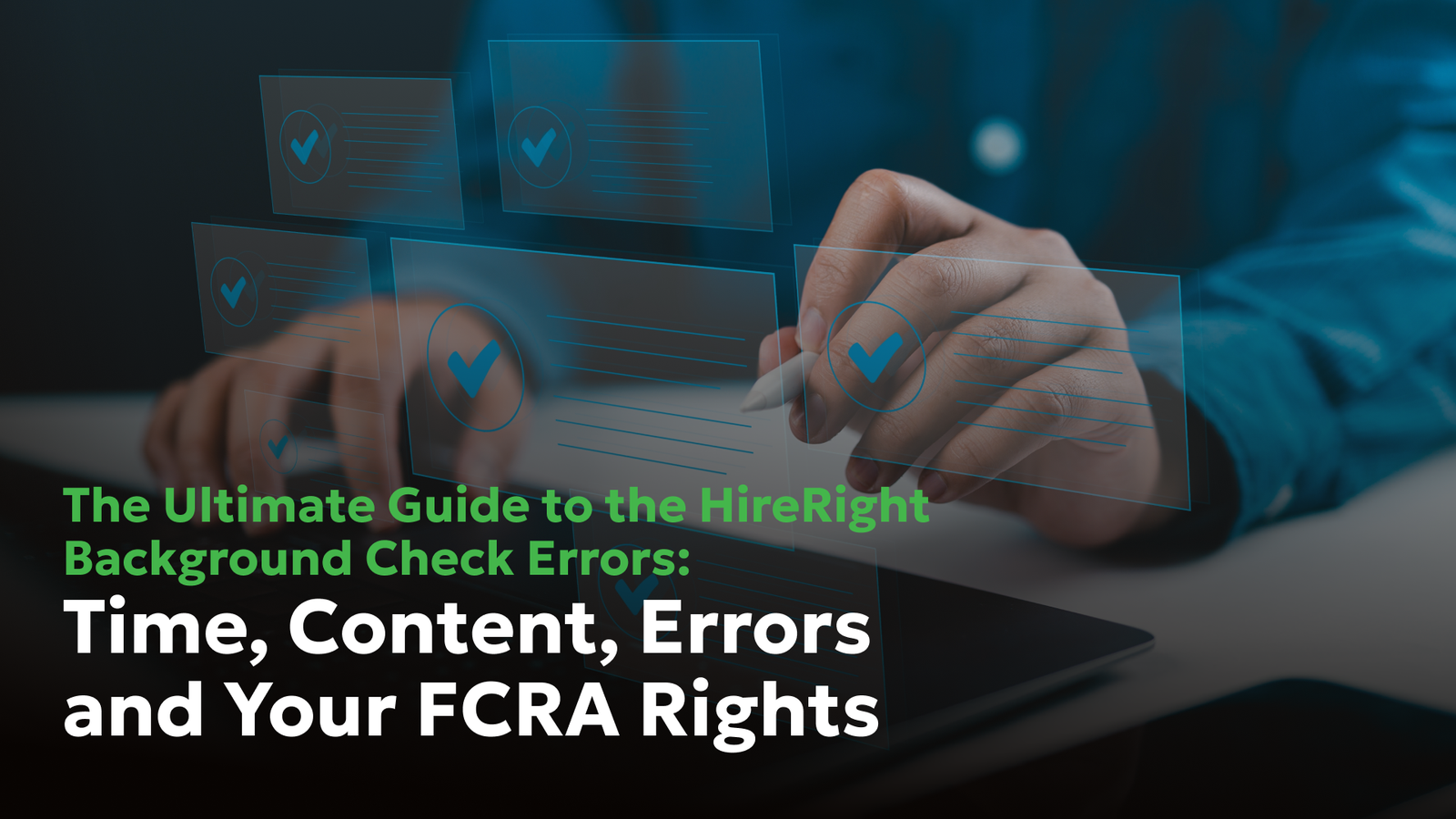
R
ONGS™You pay nothing. The law makes them pay.

